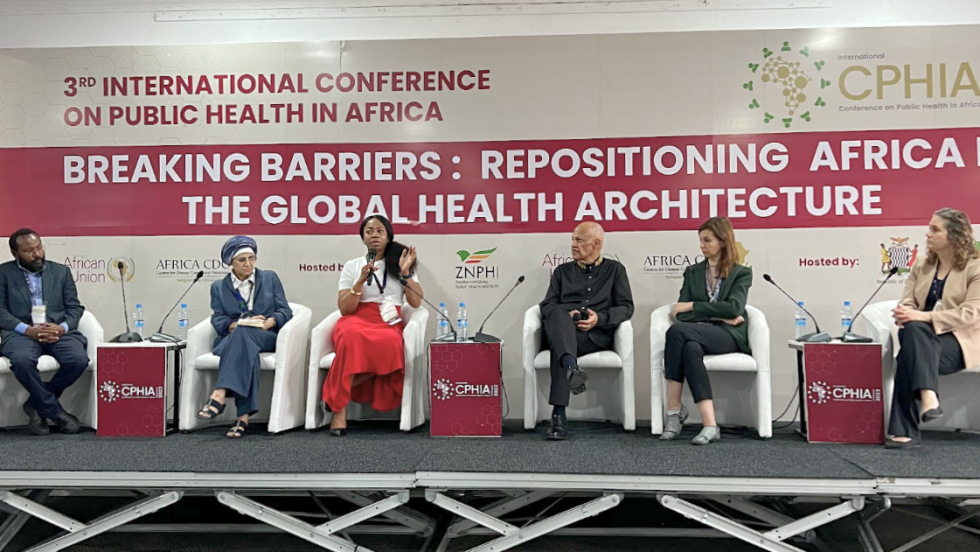The world today has the unique opportunity to leverage our assets and motivation to implement and scale up effective Early Warning Systems (EWS) to rapidly detect emerging threats. A crucial first step is establishing a foundational knowledge base on which to build. Aiming to understand key drivers that lead to successful EWS before the next pandemic, the Pandemic Center has launched a new project in partnership with Exemplars in Global Health to identify innovative practices and technologies used by low- and middle-income countries to implement and sustain robust EWS and share those practices with other key stakeholders and public health decision-makers.
This project, titled Advance Warning and Response Exemplars (AWARE), was launched on November 30, 2023 at an event that took place during the 3rd International Conference on Public Health in Africa (CPHIA) in Lusaka, Zambia. Partners include Wellcome Trust, Gates Ventures, and the Bill and Melinda Gates Foundation.
The AWARE project’s goal is to examine barriers and facilitators to developing, implementing, and sustaining robust EWS. Specifically, it aims to identify positive outliers in successful early detection and response to significant public health events, including outbreaks of climate-sensitive infectious diseases (CSIDs) and those with pandemic potential. To achieve this, it will:
- Determine what foundational epidemic intelligence infrastructure, capabilities, and processes are necessary and sufficient for effective EWS in low-resource environments.
- Frame which best practices and core capacities enable successful multi-sectoral outbreak response governance and decision-making.
The November 30 event included an introduction of the AWARE project, a look at advanced warning and response in Africa and beyond, and a panel discussion on the path forward for early warning systems and pandemic preparedness. Panelists included:
Allan ole Kwallah, Senior Researcher, Kenya Medical Research Institute (KEMRI)
Eloise Todd, Executive Director & Co-founder, Pandemic Action Network (PAN)
Natalie Mayet, Deputy Director, National Institute for Communicable Disease, South Africa
Ngozi Erondu-Manyonganise, Technical Director, Global Institute for Disease Elimination
Jennifer Nuzzo, Director of the Brown Pandemic Center, who spoke to attendees about the impact of the COVID-19 pandemic, said: “Health systems around the world were battered by the COVID-19 pandemic. But some countries responded to the crisis by developing innovative practices. By identifying these positive outliers and sharing their practices with other countries, the AWARE project will help to prepare these health systems to respond to the next emergency.”
“No country exists in a vacuum, and it is past time to consider public health in the context of regional and global impact,” said Wilmot James, Senior Advisor to the Pandemic Center. “When a country turns its disease surveillance and response weaknesses into strengths it not only protects itself by being better able to curtail infectious disease spread and impact locally, but it also protects its neighbors.”
“Early warning and response systems are an important tool in mitigating the impact of future infectious disease outbreaks,” said Dr. Natalie Mayet. “By investing in and strengthening surveillance systems, countries can work collectively to detect threats early and characterize them quickly.”
Said Dr. Allan ole Kwallah: “The science is clear: climate change can exacerbate the spread and severity of many infectious diseases. Looking toward a future with the potential to bring more frequent outbreaks, there is a vital need to leverage public health surveillance and climate data to get ahead of such threats.”
The next step for the AWARE initiative is to partner with in-country researchers in Brazil, Kenya, South Africa, and Vietnam to commence an in-depth study of their successful early detection and response to significant public health events. Findings are expected to be published in the summer of 2025.
